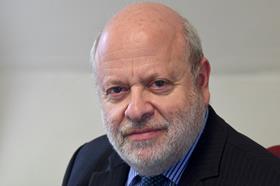An interesting case on lawyers’ rights has just been decided by the Grand Chamber of the Court of Justice of the European Union (CJEU).

It concerns legal professional privilege (LPP), and the extent to which legislation can over-ride it. The particular focus was what is commonly known as the DAC 6 directive (Directive 2018/822), which requires intermediaries, including lawyers, to notify the tax authorities of certain potentially aggressive tax-planning arrangements, rather similar to our own DOTAS reporting scheme in the UK.
The directive permits member states to exempt lawyers from their reporting duties when they are able to claim LPP under their national rules. Belgium implemented just such an exemption.
But the directive has a sting in the tail: where LPP is invoked by a lawyer, ‘each Member State shall take the necessary measures to require intermediaries to notify, without delay, any other intermediary or, if there is no such intermediary, the relevant taxpayer of their reporting obligations’.
The Flemish Bar was one of the bodies which brought a case against the Flemish Government of Belgium, which led to the following question before the CJEU: is the duty by the lawyer to notify other intermediaries of the reporting obligation, when those intermediaries may not be covered by LPP, itself in breach of the lawyer’s LPP?
The short answer is that the Belgian law (and so the directive’s requirement) is in breach of LPP. We may not be covered any longer by EU directives, and our own DOTAS and LPP may have differences from DAC 6 and LPP as implemented within various member states, but the lessons from the case are varied and interesting. (For instance, part of the reasoning came from the jurisprudence of the European Court of Human Rights (ECtHR), which obviously still covers us.)
The first lesson is that the CJEU held that the mere notification (that the lawyer has been consulted by the client) to someone who is not covered by LPP – in this case, another intermediary, not being the client – will be enough to breach LPP.
This outcome inevitably follows from decisions of the ECtHR, which the CJEU had to consult under Article 52(3) of the EU’s Charter of Fundamental Rights, which is intended to ensure the necessary consistency between the rights contained in the EU Charter, which governed the case, and the corresponding rights guaranteed in the ECHR, without adversely affecting the autonomy of EU law.
Accordingly, the CJEU said:
‘As the ECtHR has pointed out, individuals who consult a lawyer can reasonably expect that their communication is private and confidential (Altay v. Turkey (No 2) § 49). Therefore, other than in exceptional situations, those persons must have a legitimate expectation that their lawyer will not disclose to anyone, without their consent, that they are consulting him or her.’
There does not appear to be any similar reporting duty under DOTAS requiring UK lawyers to report to other intermediaries. The Law Society has excellent guidance on the implications of the DOTAS scheme for solicitors, which is currently being updated. But we are covered by the ECtHR jurisprudence that merely reporting that a client has sought advice is itself potentially a breach of LPP.
Having decided that, the CJEU had to move on to whether the interference in LPP was justified. It concluded that it was not because, although the fight against aggressive tax avoidance is important, there are other ways in which the same end can be reached – namely, by the existing duty to report already imposed on other intermediaries involved in a scheme, and obviously by the same duty which is imposed on the client as well. Therefore, there is no need for lawyers to breach LPP.
The second lesson from the case is obvious but needs highlighting all the same: the importance of LPP in a society governed by the rule of law was once again underlined by the EU’s highest court: ‘lawyers are assigned a fundamental role in a democratic society, that of defending litigants’, from which certain rights and duties flows.
Finally, the case was brought by, among others, a bar to strike down a provision in the law. The Belgian bars have a history of this: for instance, they successfully argued that the right to choose a lawyer under EU legal expenses insurance legislation extended to mediation proceedings (Case C‑667/18), although they failed in their bid to keep legal services exempt from VAT in another case (Case C‑543/14).
The circumstances of reporting and LPP may be different here, but the history of the Belgian bars, and some others on the continent such as the French bars, in challenging legislation which affects lawyers, after the lobbying process is over and the law has passed, is a good example to all bars.
Jonathan Goldsmith is Law Society Council member for EU & International, chair of the Law Society’s Policy & Regulatory Affairs Committee and a member of its board. All views expressed are personal and are not made in his capacity as a Law Society Council member, nor on behalf of the Law Society































No comments yet